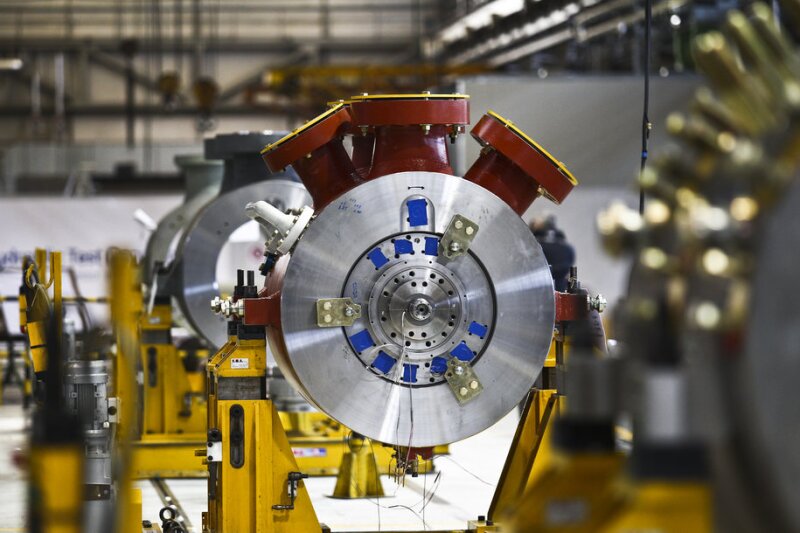Algeria’s Sonatrach has inked an agreement with Baker Hughes/Nuovo Pignone International SRL and its consortium partner Tecnimont SpA to support its project to boost and stabilize gas pressure at Africa’s largest natural gas deposit, the onshore Hassi R’Mel gas field.
The contract signed 23 May covers construction of boosting stations included in Phase III–Stage 2 of a larger project designed to maintain Hassi R’Mel’s production plateau at 188 MMsm3/D, according to Sonatrach.
Baker Hughes and Tecnimont (a part of the technology and engineering group Maire) will supply 20 compression trains based on Frame 5 gas turbine and BCL (vertical split) compressor technology, which will be installed across three gas boosting stations at the field, Baker Hughes said in a separate statement.
Packaging of the compressor trains, as well as manufacturing of the compressors and testing of the trains, will be done at Baker Hughes’ facilities in Italy.
The $2.3-billion contract covers engineering, procurement, and construction services, according to Sonatrach, which also said 300 km of existing gas-gathering flowlines will be upgraded as part of the larger project.
Final commissioning is expected in April 2027 at the field which is located 550 km south of Algiers.
Baker Hughes Chairman and CEO Lorenzo Simonelli called the award “a notable milestone in our historical collaboration with Sonatrach for key energy projects in Algeria that have played a crucial role in supplying reliable energy to Europe.”
Majors Line Up To Secure Algeria’s Position as a Key Gas Supplier to Europe
The Hassi R’Mel project is part of a broader strategic collaboration between Algeria and Italy, which includes recently signed agreements to foster bilateral cooperation and provide financial support for Algeria’s gas production, according to Sonatrach.
In 2023, Algeria surpassed Russia to become the second-largest gas supplier to Europe after Norway, further strengthening the country’s role in enhancing the European energy security, particularly in Italy where Algeria represents the biggest single source of imports given its connection to the Trans-Mediterranean Pipeline.
Upstream agreements over the past 3 months between Sonatrach and several majors have included:
- Eni signed a memorandum of understanding (MOU) last month to appraise and develop Algeria’s Zemoul El Kbar, Rourde El Louh–Sif Fatima, and Rhourde Messaoud Nord areas.
- Also last month, ExxonMobil agreed to assess the potential for developing hydrocarbon resources in Algeria's Ahnet and Gourara basins.
- TotalEnergies in April signed an MOU to develop a work program for appraisal and development of gas resources in the northeast Timimoun region, aiming to lower emissions and operational costs.
- In March, Eni signed an MOU together with Norway’s Equinor to revitalize exploration and development in the In-Salah and In-Amenas areas in southern Algeria.
Algerian LNG Deliveries to Europe Now Also in Play
Sonatrach delivered its first LNG cargo to Croatia’s KRK floating regasification terminal on 22 May just as discussions were getting underway in Brussels regarding possible sanctioning of Russian LNG which accounted for 13% of Europe’s LNG imports in 2023.
The cargo was loaded at the GL3Z liquefaction complex in Betihoua (commissioned in 2021) and delivered by the Sonatrach-owned Ougarta LNG carrier, according to Sonatrach.
Part of the regasified gas will be transported to Hungary through the Croatian gas network.
Earlier this year, TotalEnergies reported that it had extended a contract with Sonatrach that would enable the French major to take delivery of 2 million tons of LNG at the port of Fos-Cavaou, near Marseille, in 2025.


